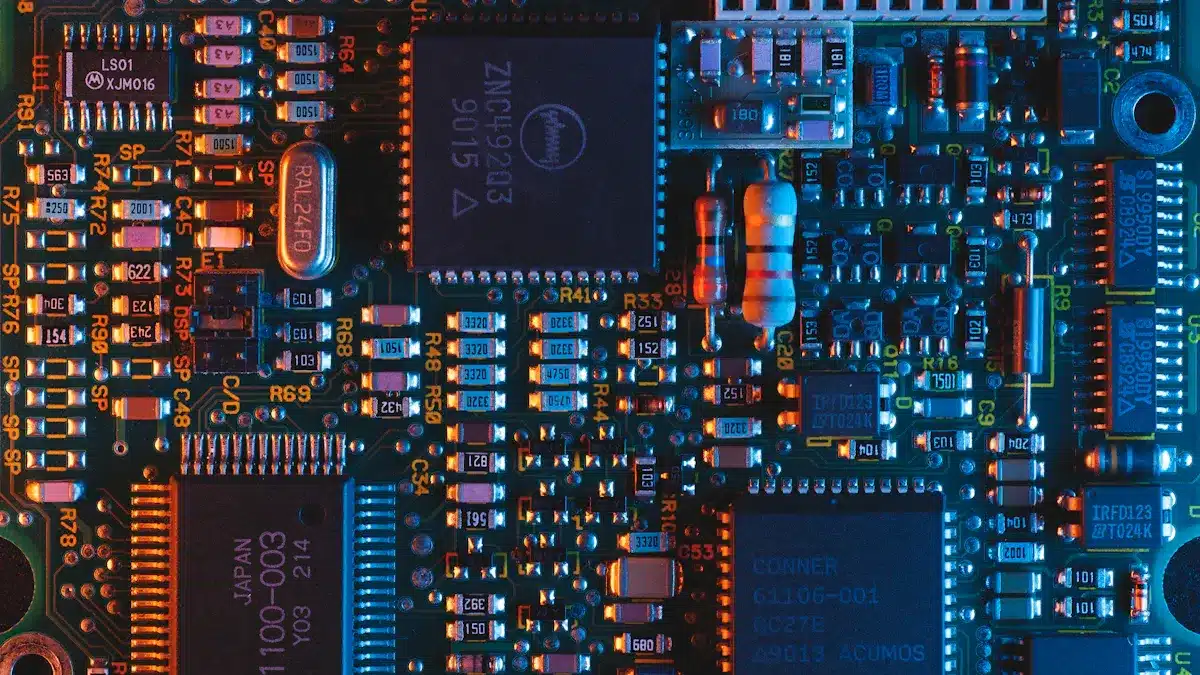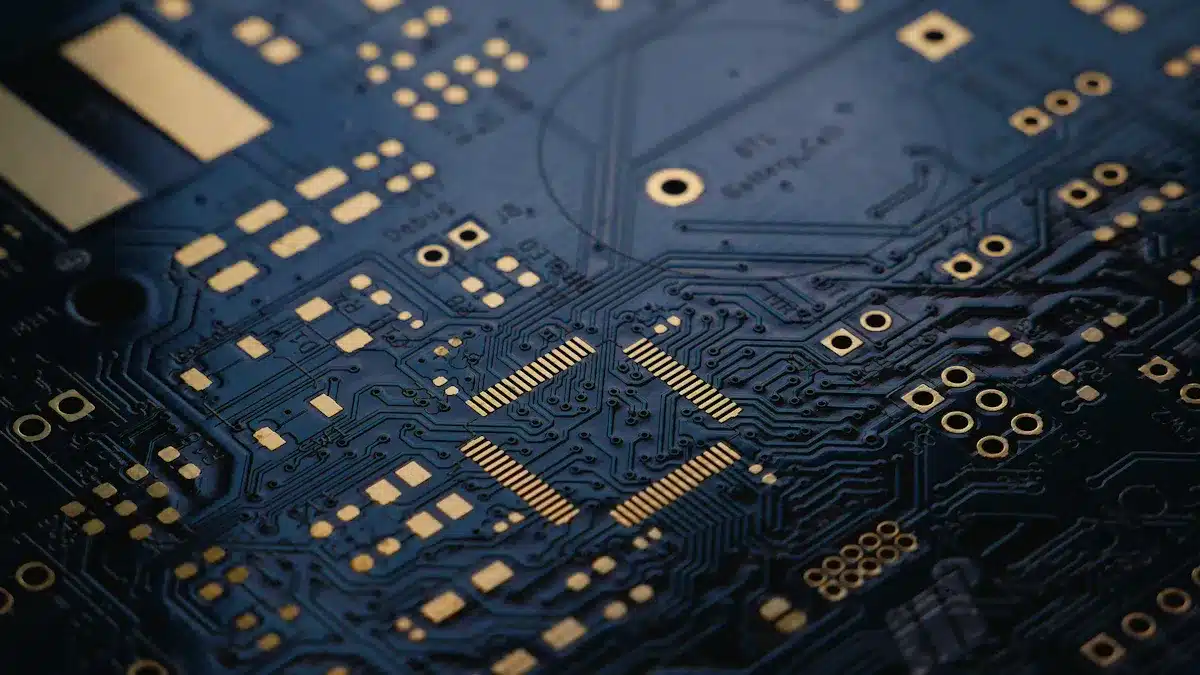
In 2025, good circuit design software is very important for your engineering projects. These tools help you make better designs, improve performance, and lower mistakes. Choosing the right software means thinking about a few things. Find features that improve your work, prices that match your budget, and ease of use that lets you focus on your designs. The right circuit design software can really change how well your projects turn out.
Key Takeaways
Picking the right circuit design software is very important. It helps make projects better. Look for features that help you work faster and with others.
Free tools like KiCad and EasyEDA are great for beginners. They have important features and don’t cost anything.
Simulation tools like LTspice and Proteus find design problems early. This saves time and money by preventing mistakes in real prototypes.
Think about the user interface and community support when choosing software. A simple interface and helpful community can make learning easier.
Keep up with industry trends and software updates. This knowledge helps you pick tools that fit with new technology and project needs.
Overview of Circuit Design Software
In 2025, circuit design software has changed a lot. Engineers can now use many tools. These tools help them make better and smarter designs. There are more pcb design software choices because of new technology and the need for electronic devices.
Here are some important changes in circuit design software from 2020 to 2025:
Year Range | Key Developments | Market Drivers |
|---|---|---|
Growth in semiconductor technology, IoT, and miniaturization | More demand for electronic devices, new technology | |
2024 | Need for AI-based design and easier interfaces | Use of AI and automation in design work |
2025-2035 | AI design automation, quantum computing, green PCB design | Ongoing industry growth and need for better circuit boards |
Choosing the right circuit design software is very important for your success as an engineer. The right tools can help you work faster, make fewer mistakes, and work better with others. But, you might have some problems when picking software. Here are some common issues:
Integration with existing EDA software: Make sure new tools fit well with what you already use.
Learning curve: New tools often take time to learn.
Comprehensive training: Teams need training to use AI features and check AI-made designs.
By knowing these things, you can choose the best pcb design software for your projects. Using advanced design tools will help you be more productive and creative in circuit design.
Best PCB Design Software Options

In 2025, many PCB design software options are great for their features and ease of use. Let’s look at some of the best PCB design software you can find:
Altium Designer
Altium Designer is still a top pick for experts. This software has a single workspace that combines schematic capture, PCB layout, and 3D modeling. You can use advanced routing tools and strong simulation features. Teamwork is easy, so groups can work together well. The subscription costs about $355 each month, making it a good choice for serious engineers.
Eagle
Eagle is famous for its easy-to-use interface and simple design tools. It combines schematic capture and PCB layout in one program, so you can create designs fast. The large libraries help you find parts easily. Eagle is especially liked by hobbyists and small businesses. You can ask for pricing, which makes it affordable for different budgets.
KiCad
KiCad is free and open-source PCB design software that is popular for its strong features. It supports unlimited layers and has interactive routing, which makes your design work better. A big community supports KiCad and offers many resources. This software is great for beginners and experienced users who want a low-cost option.
OrCAD
OrCAD is another strong tool that has easy design features. It includes tools like signal integrity analysis and component management. These features help you make sure your designs are high quality. OrCAD is good for professionals who need advanced tools and reliability. You can ask for pricing, which makes it flexible for different engineering needs.
Autodesk Fusion
Autodesk Fusion offers a combined way to do mechanical and electrical design. This software mixes PCB design with 3D modeling, helping you see your projects clearly. Its easy-to-use PCB layout editor makes designing simple. At about $85 each month, Autodesk Fusion gives great value for engineers needing a complete design tool.
Software | |
|---|---|
Altium Designer | Single workspace, advanced routing, 3D modeling, strong simulation, easy teamwork. |
Eagle | Combined schematic and layout tools, large libraries, works on different platforms. |
KiCad | Free and open-source, interactive routing, unlimited layers, big community support. |
OrCAD | Easy tools, signal integrity analysis, component management. |
Autodesk Fusion | Combined mechanical and electrical design, 3D design features, user-friendly interface. |
Choosing the right PCB design software can really change your circuit design projects. Each option has special features that fit different needs, whether you are just starting or have lots of experience.
Free Circuit Design Software
In 2025, many engineers use free circuit design software. These tools help them create good designs without spending a lot. They are great for hobbyists and beginners. You can try circuit design without paying for expensive software.
KiCad EDA
KiCad is a top choice for free circuit design software. This open-source tool has everything you need for electronics design. It includes schematic capture, PCB layout, and a 3D viewer. KiCad can handle complex designs and has SPICE simulation features. This makes it good for many projects.
Software Tool | Description |
|---|---|
KiCad | A cross-platform and open-source electronics design tool that includes schematic capture, PCB layout, and a 3D viewer. It supports complex designs and has SPICE simulation features. |
EasyEDA
EasyEDA is another popular choice for engineers. This web-based tool lets you design circuits and PCBs easily. You can use it on any device with internet access. EasyEDA has a simple interface and a library of parts. You can also share your designs, making it easy to work with others.
CircuitMaker
CircuitMaker is a free PCB design tool from Altium. It is made for hobbyists and makers who want to create high-quality designs. CircuitMaker has many features, including schematic capture and PCB layout. You can also join a community of users who share their designs and ideas. This helps you learn more.
Using free circuit design software has many benefits. Here are some key advantages of open-source tools:
Advantage | Description |
|---|---|
Cost Savings | Open-source software is usually free or low-cost, helping engineers save money on tools. |
Enhanced Creativity | Community updates and features encourage new ideas and experiments in projects. |
Community Learning | Engineers can learn from shared techniques and help improve the software, boosting their skills. |
While free circuit design software has useful features, it may not have some advanced tools found in paid software. Here are some differences to think about:
Free circuit design software in 2025 is for hobbyists and beginners, offering basic features.
Paid software has advanced tools and professional-grade features.
Free software often lacks automation and teamwork options, and has an older user interface compared to paid software, which is better and easier to use.
Even with these limits, many engineers, including those at startups and schools, use tools like KiCad. Support from places like CERN shows its trustworthiness and use in professional work.
Circuit Simulation Tools

Simulation is very important in circuit design. It helps you test and check your designs before making real prototypes. This way, you can find problems early, which saves time and money. By simulating circuits, you can try different design ideas and improve performance without spending money on hardware changes.
LTspice
LTspice is a strong simulation tool used for checking analog and digital circuits. It has an easy-to-use interface and works with many circuit parts. You can run simulations fast, which helps you see how the circuit behaves in different situations. LTspice is known for being accurate and efficient, making it popular among engineers.
Proteus
Proteus mixes circuit simulation with microcontroller simulation. This makes it great for designing embedded systems. You can create and test complex designs in a virtual space. It lets you simulate both the hardware and software of your project, making sure everything works well together. Proteus is especially helpful for projects needing signal integrity analysis, as it gives detailed information about circuit performance.
Here are some key benefits of using circuit simulation tools:
Benefit | Description |
|---|---|
Simulating circuit behavior before making physical prototypes helps find design mistakes early. This reduces costs from changes and over-engineering. | |
Reduced Time-to-Market | Testing and checking designs virtually can shorten the design process by weeks or months. This is important for industries with tight deadlines. |
Improved Accuracy | The math models used in simulations help predict real-world performance better. This reduces errors during production and ensures reliability. |
Power and Performance Optimization | Engineers can make designs more efficient and improve thermal performance by simulating circuits in different conditions. This is important in today’s energy-saving world. |
Thorough Testing Environment | Circuit simulation gives a virtual space to test circuits under various loads and conditions. This ensures they can handle real-world situations better than physical prototypes. |
In 2025, engineers often use several circuit simulation tools. Here are some of the most popular ones:
SPICE: A common tool for analyzing analog and digital circuits, with versions like LTspice and PSpice known for their accuracy.
Multisim: Known for its interactive design environment, especially useful in schools.
Proteus: Combines circuit and microcontroller simulation, perfect for embedded system design.
Using circuit simulation tools can greatly improve your design process. They help you create and refine your projects effectively, ensuring you reach your engineering goals.
Comparison of PCB Circuit Design Software
When picking the best PCB design software, think about a few important things. Features, prices, and how easy it is to use matter a lot. Here’s a look at key features of popular PCB circuit design software:
Feature | Description |
|---|---|
Schematic Capture | This means defining the circuit in a schematic editor, placing parts, and drawing connections. |
Layout Design | This focuses on where to place parts and how to connect them to keep signals strong and cool. |
Library Management | This helps keep things accurate by using checked libraries to avoid mistakes with part sizes. |
User Interface and Ease of Use
The user interface can really change how you feel about the software. Here’s how some of the top options compare:
Altium Designer: It has strong tools and is easy to use. It’s great for experts but can be hard to learn.
EAGLE: This has a simple interface and is good for beginners, but it doesn’t have much 3D view.
KiCad: It’s free and open-source, with many features, but it’s not as easy to use as paid software.
OrCAD: This has an easy interface and advanced tools, good for tough projects but can cost a lot.
Proteus: It’s easy to use and has great simulation tools, but it only does 2D layouts.
EasyEDA: This is a web tool that is easy to use and lets people work together, but it doesn’t have many advanced features.
Industry Applications
Different PCB design software is used in various industries. Here’s a look at which software is common in each industry:
PCB Design Software | Common Industries |
|---|---|
Altium | Medical Devices, Automotive Electronics, Industrial Automation |
Cadence Design Systems | Automotive, Aerospace, Consumer Electronics |
Jabil | Healthcare, Automotive, Telecommunications, Consumer Electronics |
Sanmina Corporation | Aerospace, Medical, Defence, Networking |
Community Support
Community support can help you learn better. Here’s how different software options compare in this area:
Software | Community Support |
|---|---|
Altium Designer | Lots of support |
KiCAD | Lots of support |
Eagle | Lots of support |
ORCAD | Some support |
EasyEDA | Lots of support |
Choosing the right circuit design software is very important for your success as an engineer. Each group of users has different needs. Here are some suggestions:
User Group | Recommendation |
|---|---|
Students | Use Altium Designer to access important features for circuit design and simulations. |
Hobbyists | Altium Designer helps turn electronic ideas into real products easily. |
Professionals | This software keeps up with new technology, making it great for experienced designers. |
Different types of engineering also affect which circuit design software you pick. For example, digital circuit design needs teamwork from many areas. Working with software, systems, and mechanical engineers leads to new ideas. Talking regularly helps share thoughts and solve problems. By knowing your needs, you can find the best circuit design software for your projects.
FAQ
What is PCB design software?
PCB design software helps you make printed circuit boards. It lets you create schematics, arrange parts, and test how circuits work. You can check if your designs will work well before making them.
Is there free circuit design software available?
Yes, there are free options like KiCad, EasyEDA, and CircuitMaker. These tools have basic features for beginners and hobbyists. You can design circuits without paying any money.
How do I choose the right circuit design tool?
Think about what your project needs, your budget, and how much you know. Look for features that help you work better, are easy to use, and have good community support. Trying out different tools can help you find the best one.
Can I collaborate with others using circuit design software?
Many new circuit design tools let you work with others. Software like Altium Designer and Autodesk Fusion lets several people work on the same project at the same time. This helps teamwork and makes things more efficient.
What are the benefits of circuit simulation tools?
Circuit simulation tools let you test your designs in a virtual space. They save time and money by finding problems early. You can make your designs better and ensure they work well before building real prototypes.
See Also
Effective Strategies to Improve Your PCBA Engineering Skills
Streamlined PCBA Solutions for Quick Electronics Projects
Emerging Trends Shaping PCB and PCBA Manufacturing Processes
Essential Advice for Selecting the Ideal Main PCBA
The Importance of PCBA Prototyping in Electronics Development